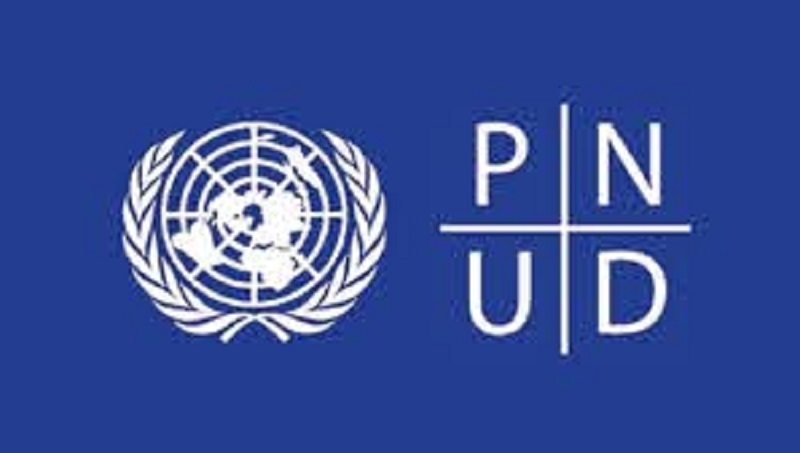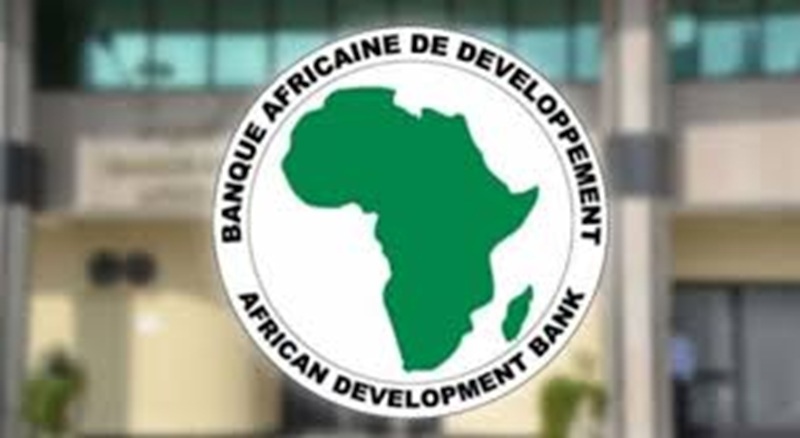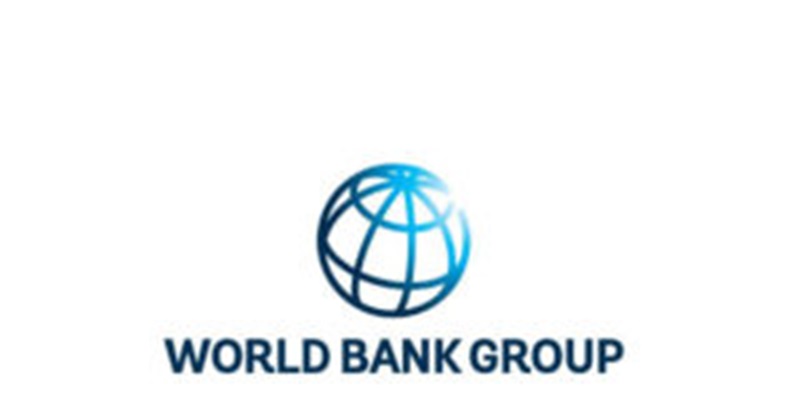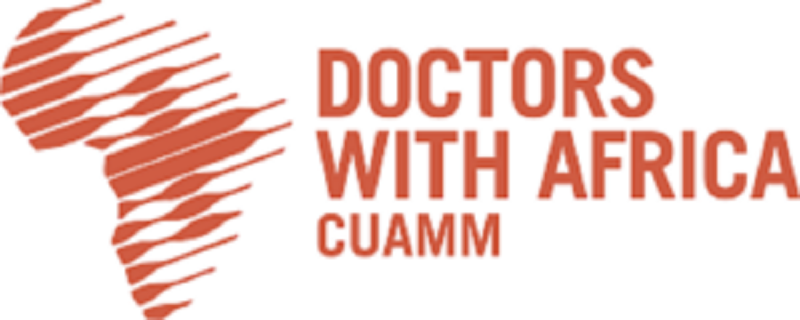CONTEXTE
Le PNUD s’engage à assurer la diversité de ses effectifs en termes de sexe, de nationalité et de culture. Les personnes issues de groupes minoritaires, de groupes autochtones et de personnes handicapées sont également encouragées à postuler. Toutes les candidatures seront traitées avec la plus stricte confidentialité.
Le PNUD ne tolère pas l’exploitation et l’abus sexuels, tout type de harcèlement, y compris le harcèlement sexuel, et la discrimination. Tous les candidats sélectionnés feront donc l’objet d’une vérification rigoureuse des références et des antécédents.
The Gambia has had a successful transition from 22 years of authoritarian rule to an embryonic democratic dispensation. During the past 22 years of authoritarian regime, justice institutions were systematically manipulated to preserve the regime in power. Justice delivery has been slow and there has been a marked deficit in access to justice for the population as well as very limited state support mechanisms or legal aid services available for victims, and defendants. This has reinforced the public’s lack of confidence in the system. Building an inclusive and effective justice system based on the rule of law and human rights is requisite for a stable democracy and sustaining peace in The Gambia. Such a justice system will contribute to the realization of Sustainable Development Goal 16 aimed at promoting a peaceful and inclusive society for sustainable development, providing access to justice for all and build effective, accountable, and inclusive institutions at all levels. Legal reform and the strengthening of the justice system is necessary to re-establish standards and procedures, to enhance the capacity, accountability and oversight of the judiciary and justice institutions in line with basic principles of independence of the judicial process, to ensure fair justice service delivery to all Gambians, in particular women and children, and to deal with the past and address grievances and prepare the future to build democracy based on rule of law and human rights. To consolidate democratic governance in The Gambia, the Government in its 2018-2021 National Development Plan (NDP) identified governance as a key priority for reform to assure the durability of peace, transitional justice, and reconciliation. The new administration embarked on several reform initiatives including national reconciliation, constitutional review, and security sector reform. UNDP Governance Portfolio supports Government’s implementation of governance priorities through our work in Transitional Justice, Security Sector Reforms, Elections Support, Rule of Law, and support to Parliamentarians.
Under the supervision of the Head of Programme the Programme Specialist/Head of Governance (HoG), the Programme Analyst (Governance, Gender, and Human Rights) is responsible for effective delivery of assigned projects under the UNDP Governance Portfolio. The Programme Analyst will actively contribute to analysing political, social and economic trends and issues related to governance, gender and human rights in the Gambia and participates in the formulation, management, implementation, monitoring, evaluation and reporting of project activities within assigned portfolios
The Programme Analyst (Governance, Gender, and Human Rights) works in the Governance cluster and in close collaboration with other Programme staff and Operations team in the Country Office (CO), Programme staff in other UN Agencies, UNDP HQs staff and Government officials, technical advisors and experts, multi-lateral and bi-lateral donors and civil society to successfully implement the Governance Portfolio and the UNDP Country programme.
Position Purpose
Summary of key functions:
- Implementation of CO programme strategies in the area of Governance, Gender and Human Rights
- Support Management of Governance Portfolio including finance Management and ensuring quality assurance
- Contribution to development of strategic partnerships and implementation of the resource mobilization strategy
- Implementation of the monitoring and evaluation strategy and coordination of the M&E processes
- Knowledge Management and Policy Development
Key Duties and Accountabilities
Ensures implementation of programme strategies and provision of top-quality advisory services and facilitation of knowledge building and management focusing on achievement of the following results:
- Contributes to advise of the political, social, and economic situation in the country and preparation of substantive inputs to CCA, United Nations Sustainable Development Cooperation Framework (UNSDCF)/ Country Programme Document (CPD)., CPAP and other documents.
- Informs analysis related to Governance, Gender, and Human Rights, keeping abreast with policy changes regarding governance and human rights and informing senior management.
- Contributes to thorough analysis and research for identification of areas for support and interventions within the Governance, Gender, and Human rights programme cluster.
- Identification of areas for support and interventions within the governance cluster, with a particular emphasis on political governance, gender, human rights, decentralization, representation and participation, peacebuilding, conflict resolution, mediation and/or human security practice areas and implementation of assigned cluster Annual Work Plan (AWP)
- Ensure robust gender analysis and mainstreaming of gender priorities within the programme and policy advisory function.
- Ensure that the programme activities are closely coordinated with the stakeholders – both national and international – and that a high level of collaboration and cooperation is in place at all levels
- Ensure adequate visibility and awareness in relation to programme implementation and conduct and support resource mobilization efforts for the programme
- Represent UNDP as requested and participate in all regular meetings including of the international and donor community on governance, gender, and human rights.
- Contribute to the development and implementation of CO business processes mapping particularly the content of internal Standard Operating Procedures in Results Management for the Governance Cluster.
- Identification of sources of information related to policy-driven issues. Identification and synthesis of best practices and lessons learned directly linked to programme country policy goals.
- Provision of policy options and high-quality advisory inputs to UNDP programmes and projects to ensure these are responsive to national policies, priorities and strategic plans, and advance UNDP’s corporate goals.
- Sound contributions to knowledge networks and communities of practice.
Ensures effective management of the CO programme within the governance practice area, focusing on quality control from formulation to implementation of the country programme achieving the following results:
- Effective application of RBM tools, preparation of workplans, establishment of management targets (BSC) and monitoring achievement of results.
- Design and formulation of CO programme within the area of responsibility, translating UNDP’s priorities into local interventions. Coordination of programme implementation with the executing agencies. Introduction of performance indicators/ success criteria, cost recovery, targets and milestones.
- Provision of operational and technical support to Implementing Partners and Responsible Parties, as assigned.
- Initiation of a project, presentation of the project to PAC, entering project into Atlas (in small offices), finalization of contribution agreement; determination of required revisions; coordination of the mandatory and budget re-phasing exercises, closure of projects through review. Programme Analyst can perform functions of Manager Level 1 in Atlas for POs and vouchers approval, participates in recruitment processes for projects.
- Integrity of financial and administrative procedures through regular financial and substantive monitoring and evaluation of the projects, identification of operational and financial problems, development of solutions. Participation in audit of NEX projects.
- Supervision of requisitions, purchase orders and payment requests in ATLAS, procurement, and HR actions to provide monthly delivery updates on financial performance
- Provide leadership and oversight to ensure that qualitative services are provided to national partners including fair and transparent procurement process and efficient operational support
- Follow up on audit recommendations. All exceptions are timely reported.
- Follow up and coordinate, together with national partners, donors and development partners, and ensure the conduct of regular Programme Board meetings and follow up on the decisions and recommendations made
- Aggregate narrative and financial reports are regularly prepared on activities, outputs and outcomes including preparation of donor reports.
- Support the CO as may be required to achieve its strategic goals.
Ensures creation of strategic partnerships and implementation of the resource mobilization strategy in cooperation with the Management Support and Business Development Team focusing on achievement of the following results:
- Development of partnerships with the UN Agencies, IFI’s, government institutions, bi-lateral and multi-lateral donors, private sector, civil society in the specific thematic areas based on strategic goals of UNDP, country needs and donors’ priorities.
- Analysis and research of information on donors, preparation of substantive briefs on possible areas of cooperation, identification of opportunities for initiation of new projects, active contribution to the overall office effort in resource mobilization.
- Facilitate knowledge building of political governance, decentralization, representation and participation, peacebuilding, conflict resolution, mediation and/or human security and related perspectives within the Governance Cluster and actively participates in corporate UNDP knowledge creation.
- Support to development of policies and institutions that will address the country problems and needs in collaboration with the Government and other strategic partners.
Ensures implementation of the monitoring and evaluation strategy and coordination of the M&E processes for the achievement of the following results:
- Objective evaluations are designed and implemented to assess the UNDP Governance Portfolio relevance, effective efficient, impact and sustainability of results; to ensure evaluations carried out in a credible and systematic manner; evaluations lessons and recommendations are used for programme design, contribute to the implementation of CPD and UNSDCF priorities and results.
- Lead on the implementation of the monitoring and evaluation policy to ensure that Governance programme and projects monitoring, and evaluation requirements are met, and participate in the conduct of thematic and crosscutting evaluations.
- Liaise with Evaluation Office at Headquarters regarding evaluation approaches and methodologies, ensuring that UNDP meet the minimum requirements for monitoring and evaluation, including the conduct of mandatory project evaluations.
Knowledge Management and Policy Development:
- Identify sources of information related to policy-driven issues, identification and synthesis of best practices and lessons learnt directly linked to the programme
- Support the implementation of priority justice reforms including by strengthening sector-wide coordination and the capacities of the Ministries of Justice to lead consultations with other relevant actors and stakeholders
- Support Governance sector personnel and their training in organisational development methods and tools
- Support the development of policies and institutions that will address the country problems and needs in collaboration with the Government and other strategic partners.
- Sound contributions to knowledge networks and communities of practice.
- Organize trainings for the operations/ projects staff on programme issues.
Requirements:
Education
- Master’s degree or a Bachelor’s degree in social science, political science, social policy, public policy, law, human rights, development studies or a related area.
Experience, Knowledge, and Skills
- A minimum of 2 years (with the Master’s degree) and of 4 years (with the Bachelors degree) of relevant experience at national or international level in governance project implementation and management as well as hands-on experience in design, monitoring and evaluation of development projects
- Practical experience in the Gambia on gender, human rights, and broad governance areas.
- Experience in the use of computers and office software packages and handling of web-based management systems
- Demonstrated experience in sustaining working relationships with diverse stakeholders including government, civil society, communities, and the private sector.
- Experience working with project teams and knowledge of project cycle management.
- Knowledge of organizational management, asset management, information and communication technology, administration, financial and human resources management, preferably with the UN/UNDP would be an advantage.
- Experience in designing and implementing programs on decentralization/local governance, human rights, legal and judicial reform, anti-corruption, and legal aid, would be an advantage
- Experience with working on gender equality, disability and youth issues would be an advantage
- Experience working with the UN or other multilateral agencies, in the framework of multi donor projects and related to the Gambia is an added advantage.
Language Requirements:
Fluency in oral and written English.
Working knowledge of other UN language desirable
Knowledge of at least two local languages will be an advantage
- Mandinka
- Wollof
- Fula
Expected Demonstration of Competencies
Core
Achieve Results: LEVEL 1: Plans and monitors own work, pays attention to details, delivers quality work by deadline
Think Innovatively: LEVEL 1: Open to creative ideas/known risks, is pragmatic problem solver, makes improvements
Learn Continuously LEVEL 1: Open minded and curious, shares knowledge, learns from mistakes, asks for feedback
Adapt with Agility LEVEL 1: Adapts to change, constructively handles ambiguity/uncertainty, is flexible
Act with Determination LEVEL 1: Shows drive and motivation, able to deliver calmly in face of adversity, confident
Engage and Partner LEVEL 1: Demonstrates compassion/understanding towards others, forms positive relationships
Enable Diversity and Inclusion LEVEL 1: Appreciate/respect differences, aware of unconscious bias, confront discrimination
Cross-Functional & Technical competencies
Partnership management – Multi-stakeholder engagement and funding Knowledge and ability to forge multi-stakeholder partnerships, and remove any obstacles to resource mobilization and multi-stakeholder funding platforms
Business Direction and Strategy – Strategic Thinking Ability to develop effective strategies and prioritized plans in line with UNDP’ objectives, based on the systemic analysis of challenges, potential risks and opportunities, linking the vision to reality on the ground, and creating tangible solutions
Ability to leverage learning from a variety of sources to anticipate and respond to future trends; to demonstrate foresight in order to model what future developments and possible ways forward look like for UNDP
Business Management – Partnership management Ability to build and maintain partnerships with wide networks of stakeholders, Governments, civil society and private sector partners, experts and others in line with UNDP strategy and policies
Digital & Innovation – Digital transformation design Practical and strategic skills in digital transformation for governments and organisations.
Business Management – Results-based Management Ability to manage programmes and projects with a focus at improved performance and demonstrable results
Business Management – Communication Ability to communicate in a clear, concise and unambiguous manner both through written and verbal communication; to tailor messages and choose communication methods depending on the audience
Ability to manage communications internally and externally, through media, social media and other appropriate channels
Business Direction and Strategy – Effective Decision Making Ability to take decisions in a timely and efficient manner in line with one’s authority, area of expertise and resources
IMPORTANT NOTE:
Candidates selected pursuant to this vacancy may be subject to UNDP’s policy on Probation upon assignment.
UNDP Disclaimer
Applicant information about UNDP rosters
Note: UNDP reserves the right to select one or more candidates from this vacancy announcement. We may also retain applications and consider candidates applying to this post for other similar positions with UNDP at the same grade level and with similar job description, experience and educational requirements.
Scam warning
The United Nations does not charge any application, processing, training, interviewing, testing or other fee in connection with the application or recruitment process. Should you receive a solicitation for the payment of a fee, please disregard it. Furthermore, please note that emblems, logos, names and addresses are easily copied and reproduced. Therefore, you are advised to apply particular care when submitting personal information on the web.





